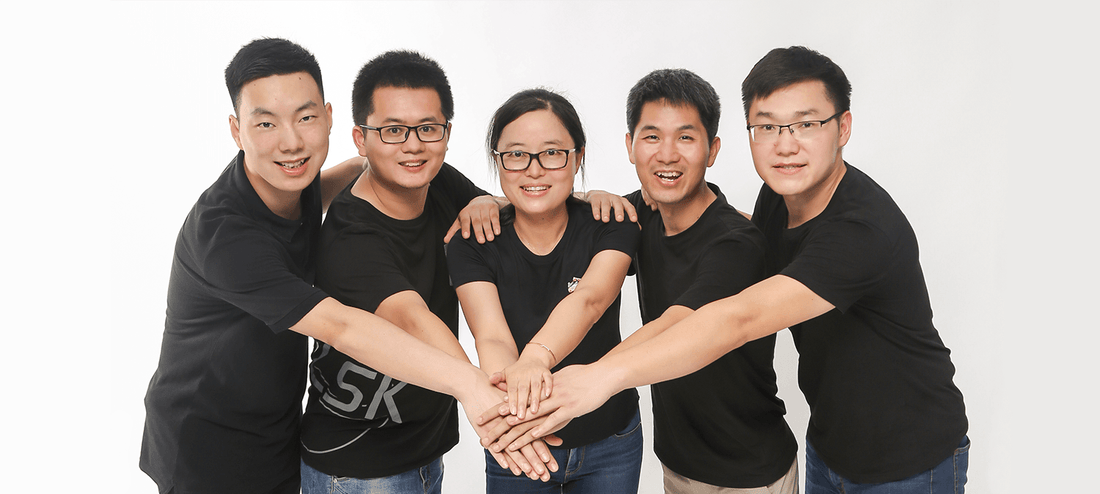-
With regional EU production, our products would cost over 200 euros due to lack of infrastructure.
-
In Zhejiang, we have been working in partnership with our producers for years and have a five-member FLSK team on-site.
-
In the production facilities, we can guarantee fair working conditions such as minimum wages, free employee representation, and well-paid overtime.
Zhejiang - a diverse province in southeast China. On one hand, it's agriculturally characterized as the "land of fish and rice." On the other hand, it's a global hub for manufacturing stainless steel products. And FLSK? Right in the middle!
German Production as a Dream
But why not Germany, or at least Europe? Even in the company's early months, production was a ubiquitous topic. This led to endless inquiries and discussions. From the idea of converting adjacent industries like German plant engineering to a Polish-Czech production facility. The sobering realization: Regional production remains a dream for now. The main problem with all options is profitability. We simply wouldn't be able to sell a water bottle for over 200 euros.
China - The Stainless Steel Expert
Germany and large parts of Europe have been withdrawing from the manufacturing sector for many years. At the same time, the production of stainless steel products has increasingly shifted to Asia, along with many other industries. Economic production in our regions? Impossible! The infrastructure has simply disappeared. In contrast, the Chinese region of Zhejiang has become increasingly professional. This is evident through the very short production routes. The entire production of the FLSK bottle and FLSK coffee mug takes place within a 50-kilometer radius - from the steel sheet to final packaging. Unthinkable in Germany! And no secret: the much longer journey to Munich, which we don't overlook.
Far Away and Yet So Close
Thousands of kilometers separate us from our suppliers in China, along with a different culture. What does that mean for us? Creating closeness as much as possible. Fair cooperation is a value we uphold both in Munich and Zhejiang. The foundation for this is our collaboration with suppliers on equal footing since 2015. The focus is on long-term development over the years. We don't engage in the usual local hunt for the cheapest supplier but instead focus on long-term partnerships. This is achieved through personal exchanges, especially during Quentin's on-site visits several times a year. The second component is the five-member FLSK China team, which we introduce to you here. Our production experts Mater, Xiaoli, Linda, Dave, and Hu (title photo from left to right) visit our production facilities daily for quality checks. The photo shows the FLSK China team during Quentin's on-site visit.

What Exactly Does "Fair" Mean?
For us, quality doesn't just mean producing high-quality, durable products. Quality also includes the human component. Our five-member FLSK China team is directly employed with us. We pay them at the same level as our Munich colleagues. Additionally, we provide social security benefits.
At our direct suppliers, external audits by the Business Social Compliance Initiative (BSCI) are conducted annually. This provides an objective assessment of working conditions in the factories. Most are rated as "good." The gallery below accompanies the production process of our main supplier.
-
All employees have voluntary contracts; there is no child or prison labor.
-
In all companies, freely elected employee representatives meet regularly and can present their concerns.
-
Factory employees' wages meet or exceed the regional minimum wage (our main producer pays 45% more).
-
Overtime is voluntary and compensated at a 150% premium (weekdays) or 200% (weekends).
-
All employees receive comprehensive protective equipment.

Our China Mission: Understanding Moves
What exactly is "fair" is always subjective. For us, it means meeting producers and local employees on equal footing. We want to understand how people work and live there. The Chinese (work) culture doesn't match the German one, meaning some areas are handled differently. We need to accept that. One recurring example is working hours. In China, work ethics are high, and overtime pay is very attractive. As a result, many employees voluntarily work significant amounts of overtime.
Our role? In the coming years, we'll continue to communicate on equal terms on all relevant topics and understand both sides, actively promoting the development of a shared understanding of "fairness."

